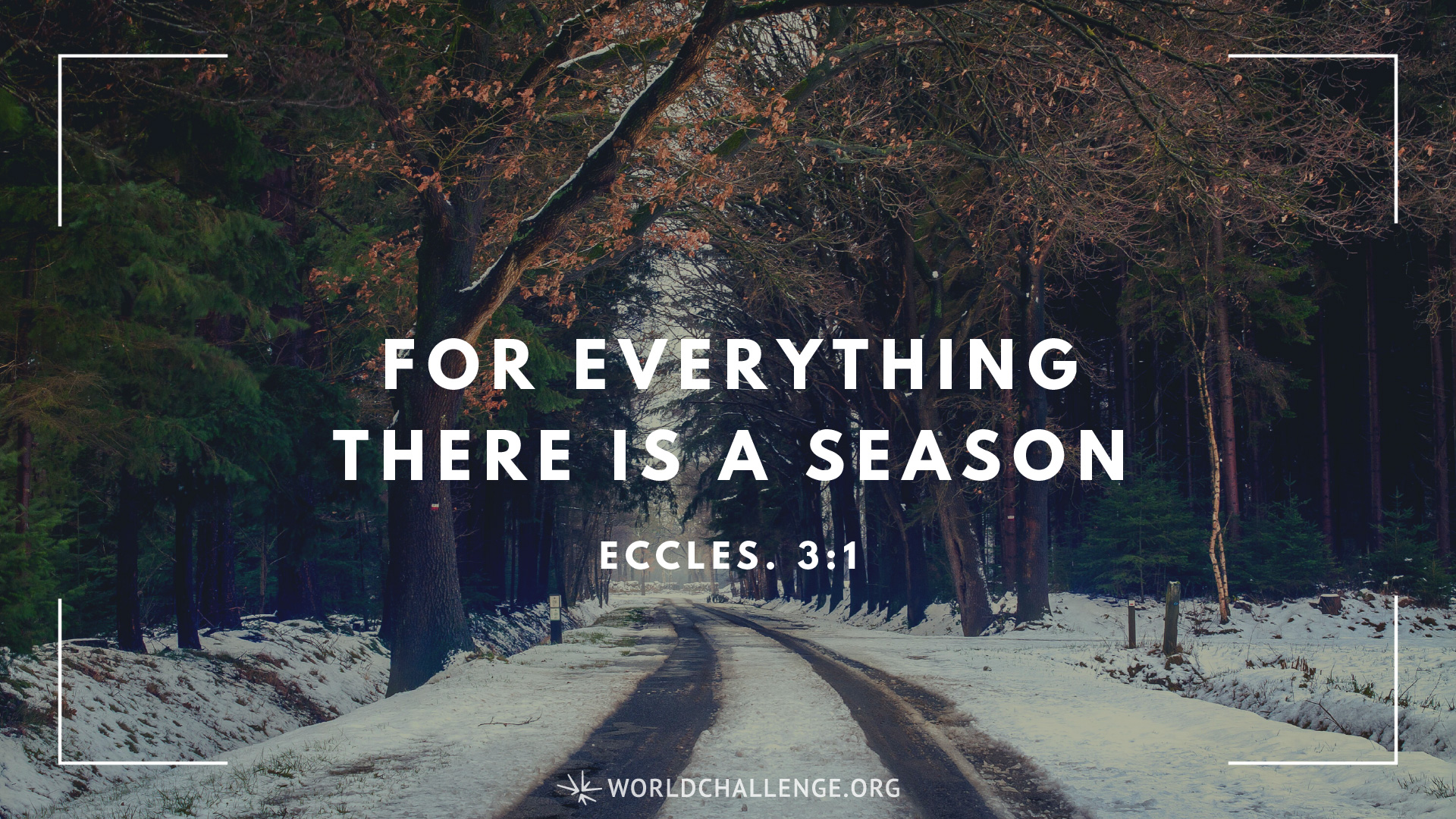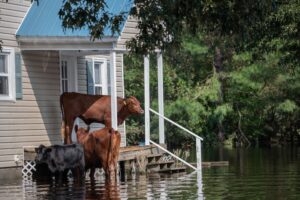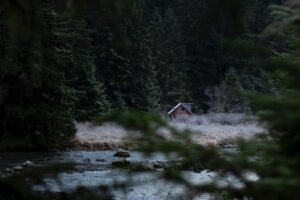
Metamorphosis

For everything there is a season, and a time for every matter under heaven… Ecclesiastes 3:1
Many years ago, when Ken introduced me to his mother, she exclaimed with delight, “Oh, Kenneth, she has such a cute little nose.” You see the Barthelette clan was known for the prominence of its noses, and a daughter-in-law sporting a small or average nose was quite a treat for her.
Fast forward to a few weeks ago when I told you of my visit to the dermatology office prepared to have surgery for the removal of cancerous cells from my nose. This was my second round of basal cell carcinoma, the first resulting in surgery to remove the cells followed by a second surgery for reconstruction. I thought we were going to do the same thing again. My doctor simply said, “I don’t want to cut your nose. If I do, we will have to graft because your skin hasn’t enough elasticity to repair a second surgery in the same place.”
So I left his office with a prescription that he said would cause my nose to have the worst sunburn I could imagine but that in the end, he hoped I would have fresh new skin without blemishes or scars. He said the success rate was very good. I left a bit dazed and confused. I had come prepared for one thing and been offered a presumably less invasive alternative.
After getting some things accomplished that needed to be done prior to starting the treatment, I spent four weeks applying the medication five nights a week with weekends off. My nose has experienced a series of stages and they continue as I write, but I’m beginning to see the proverbial “light at the end of the tunnel.” It has progressed through a startling red color (Ken said I should apply to lead Santa’s sleigh as my nose was as bright as Rudolph’s) then to crusty scabs and peeling skin and now to a lighter shade of pink with a few scabs and dark spots remaining.

I think it is akin to a caterpillar encased in its pupal stage preparing for its metamorphosis, its transition from a crawling creature to a winged one. The crusty outer layer covering the silky protective layer surrounding the caterpillar is suspended in a safe place. It appears that nothing is happening for quite some time and someone watching vigilantly for change to occur might be disappointed. But if that someone kept hoping and watching, he or she would eventually see a beautiful butterfly emerge from that crusty encasement and fly away.
Therefore, if anyone is in Christ, he is a new creation. The old has passed away; behold, the new has come. II Corinthians 5:17
Now I don’t expect major miracles in terms of physical beauty. At my age, I’ll be happy with smooth skin free of cancer cells. The thing is, I know a minor miracle has been working on my nose and, God willing, it will heal.
A similar scenario can be applied to our faith and our hope in things to come. Sometimes we have to go through a little fire and scrape away the crusty ashes to find the beauty that can still lie within. Every one of us travels many roads and we make many different types of journeys. Our church is on the road to a new journey of discovery. We will encounter bumps along the way, some may be large, but faith, hope, and love can smooth out those bumps, and over time, we can become something brand new, just like my “cute little nose” or a beautiful butterfly.

We are in the midst of a metamorphosis much like that caterpillar. Right now, we are in the waiting time, encased and protected by the training of our past. But one day, as we work, study and pray together, we will be transformed into a beautiful new design, created by God.
I close with my very favorite verse because God has always had a plan for each of us, individually and collectively:
For I know the plans I have for you, says the Lord. They are plans for good and not for disaster, to give you a future and a hope. Jeremiah 29:11
Read more...

Thank You Veterans

 I have fought the good fight, I have finished the race, I have kept the faith. 2 Timothy 4:7
I have fought the good fight, I have finished the race, I have kept the faith. 2 Timothy 4:7
The November morning is cool and clear. A mist nestles low over the valley as the sun rises, soon to burn off any residual moisture. Hundreds of American flags are planted next to grave markers and then a flag-draped coffin appears at an open gravesite. Another soldier is being laid to rest after serving his or her country. The sound of a trumpet sends the notes of Taps over the hushed cemetery. And then comes the discharge of weapons sounding a twenty-one-gun salute. How appropriate that it should happen on Veteran’s Day.

This Friday we honor all veterans, living and deceased. War is not something that we ask for but at times have been called upon to respond to. To all those who have fought to achieve and maintain the freedoms we enjoy, we owe a tremendous thank you. They’ve left the comfort of home and family and traveled to faraway places theretofore only seen in their imaginations. Others have served on the home front. Some have offered medical skills while still others have brought their faith to the battle, serving as chaplains. Some served out of family tradition and others had a passionate need to defend their country. Some were drafted into service but, once there, became dedicated members of the family. And many never came home.
Not only have these soldiers sacrificed. Their families have carried on in their absence, often with little support. Each one has earned our respect and our heartfelt thanks.
 As Christians, we often find ourselves engaged in battle. We live in a world that has substantially turned away from God. But despite the obstacles we face, we continue to make every effort to carry the light of Jesus into all the darkest corners. We live by one simple principle, “Love the Lord your God with all your heart and with all your soul and with all your mind ….. love your neighbor as yourself.” Matthew 22:37 & 38. Obeying those commandments is often a challenge and we must dig deep to find the heart and soul and faith to do what is asked of us.
As Christians, we often find ourselves engaged in battle. We live in a world that has substantially turned away from God. But despite the obstacles we face, we continue to make every effort to carry the light of Jesus into all the darkest corners. We live by one simple principle, “Love the Lord your God with all your heart and with all your soul and with all your mind ….. love your neighbor as yourself.” Matthew 22:37 & 38. Obeying those commandments is often a challenge and we must dig deep to find the heart and soul and faith to do what is asked of us.
The important thing to remember is that God always promised to be right there beside us. If you’ve served in the military, you know how crucial good backup can be. Having a trusted buddy beside you bolsters confidence and makes you sometimes feel you can accomplish almost superhuman feats of stamina and courage. It’s often been said that a lot of soldiers found God at the bottom of a foxhole. No matter how much trust you place in your buddy, God is the most important ally you can have in any foxhole or any domestic situation.
Listen for His voice and hear what He has to say. He won’t steer you wrong. And on Veteran’s Day or any day for that matter, take the opportunity to say “Thank You” to a veteran you know. Because of them, America exists, in all her glory and with all her warts. She certainly isn’t perfect, but she’s our home, for now.
Now there is in store for me the crown of righteousness, which the Lord, the righteous Judge, will award to me on that day—and not only to me, but also to all who have longed for his appearing. 2 Timothy 4:8
Read more...

Stand In Faith

Be still, and know that I am God…Psalm 46:10
This year, 2022, seems to be in a downhill race to its finish line. The colors in and around our yard are breathtaking but the leaves are in such a rush to fall, sometimes it sounds like it’s raining. We received drone shots from our son-in-law near the Willow Springs area and the colors were so rich and beautiful from above that I could hardly believe they weren’t taken in New England. In a week, they’ll all be a memory, as will many other events.
The World Series will soon be wrapped up and we’ll have a new baseball champion. By the time you read this, NASCAR fans will know the names of the top four drivers going into next Sunday’s championship race. Football season is nearly finished for our high schoolers and the pro season is half completed. Halloween goblins will have gathered and likely eaten most of their candy. Daylight savings time ends this weekend. Casey announced on Sunday that Christmas Cantata practice is starting (I’m so glad it’s coming back). And Turkey Day will be here before we know it. Then comes Advent and preparations for Christmas.
In the midst of all that there’s one more important day on the Aldersgate calendar. On November 13 at 4 PM, our members will vote whether to continue affiliation with the United Methodist Conference of churches or to begin a new journey. It’s an important day for all of us and should be approached in soul-searching faith. Wherever you land on this issue, do so prayerfully, stand for your beliefs, and when the dust settles remember that we are all children of God. One of my favorite songs was sung on Sunday morning. I think it carries a very important reminder of whose we are and I’m going to borrow some of those lyrics. I hope they touch your heart as they do mine:
You split the sea so I could walk right through it
My fears are drowned in perfect love
You rescued me so I could stand and say
I am a child of God
I’m no longer a slave to fear, I am a child of God.

(Excerpted from No Longer Slaves written by Jonathan Helser, Joel Case and Brian Johnson)
We are truly blessed to be His children. We can rely on Him in every circumstance, even when life seems at its worst. He always provides a way forward. Remember that this life is only the beginning and is only temporary. The second chapter will be a glorious and everlasting one!
Trust in the Lord with all your heart, and lean not on your own understanding. In all your ways acknowledge Him, and he will make straight your paths. Proverbs 3:5-6
Read more...

Making Preparations

Prepare your work outside; get everything ready for yourself in the field, and after that build your house. Proverbs 24:27 
It’s that time of year once more. We’ve experienced our first freeze of the fall bringing to an end a very difficult growing season, though I think the summer’s drought did a pretty good job of that on its own. The winds of this past weekend brought clouds of leaves tumbling to the ground, along with limbs and outdoor furnishings, and Halloween decorations. And I, being the gardener that I am, have been trying to keep perennials alive throughout the summer but now am putting them to bed for a long winter’s nap.
We recently decided it was time to remove a large island landscape bed from our backyard. This season’s gardening convinced me that I had too much-landscaped area to manage efficiently. So, after friends and neighbors dug what they wanted and I transplanted some favorites to new homes elsewhere in the yard, Ken began the arduous chore of digging the remaining plants, no easy feat in hard-packed dry soil and more tree roots than could be imagined. Those tree roots were another reason for disposing of the bed. They severely limited our ability to cultivate the bed, amend the soil or add new plants. Each area had to be heavily watered just to get a spade in the ground making for some heavy labor but Ken has currently managed to extricate all but a small portion. Meanwhile, I’ve been kept busy watering the transplants and removing dead debris from other beds in the yard, and moving potted annuals indoors to prevent freezing. I like to hang on to them as long as possible.
All these preparations have short-term and long-term value. In the short term, we are preparing our yard for the fast-approaching winter weather, but the long-term goal is to provide an environment for our plants to live happy lives for many years. And we’re not the only ones making preparations. Our squirrel population is keeping me busy repairing messes they continually make any place where we have disturbed the dirt. They love to bury acorns in those areas that are easier to dig so my beds and pots are a consistent choice for their winter stashes. We have both a pin oak and a bur oak tree in our yard and they are producing pretty heavily when you consider the drought we still experience. And even though we may have gotten rain by the time you read this, the drought will still be with us. It will take many inches of falling water to make up the deficit.
 At any rate, I’ve already found both tiny (pin oak) and huge (bur oak) acorns buried in my pots and beds and when spring rolls around, tender sprouts will spring forth wherever the squirrels have forgotten a particular stash and I have not discovered the treats they buried. As you can see, our little corner of the world is a busy place right now. Everyone is making preparations and soon we’ll rest.
At any rate, I’ve already found both tiny (pin oak) and huge (bur oak) acorns buried in my pots and beds and when spring rolls around, tender sprouts will spring forth wherever the squirrels have forgotten a particular stash and I have not discovered the treats they buried. As you can see, our little corner of the world is a busy place right now. Everyone is making preparations and soon we’ll rest.
Therefore you also must be ready, for the Son of Man is coming at an hour you do not expect. Matthew 24:44
I wonder what our world would be like if we all applied the same level of purpose to our personal faith walks as the squirrel exhibits in burying nourishment for the coming winter. How much more love could we show to those around us? How much more light could we shine in all our dark corners? How much more beauty would we then see in all of God’s miraculous creations? Our lives are a series of seasons and the preparations we make in each of those seasons strengthen us for the winter we will all one day experience. Will we be ready when that day comes? Will we have stored away enough “acorns” in our personal faith stash to prepare us for eternity? Our eternity doesn’t depend on good works. It has already been secured on the cross. But that doesn’t mean that we should overlook gracious works that honor Him. As our opening scripture says, our life plan is to accept the will of God in our lives, to prepare our field through study and prayer, and then build a house in which we all care for each other. What preparation can you make today that will make you better able to be ready when an opportunity to share your love of Jesus presents itself…. in order that the house may grow?

Read more...

Getting Over Self

What does the Lord require of you? To act justly and to love mercy and to walk humbly with your God. Micah 6:8
I like being right! That sounds like a foolish statement, doesn’t it? But I guess most of us have that desire to one degree or another. For many years I was blessed, or cursed, depending on your perspective, with a pretty accurate memory. When I recalled a situation, those around me typically accepted that my account was accurate. I seldom made mistakes with details. My memory netted me my first real job. I’d been on probationary status with a major retailer in St. Louis during the Christmas holidays when a position opened that required good organizational skills and a lot of memory work. My employer entrusted me with the position and I developed a really good working relationship with the various people who depended on me for accurate information regarding the company’s in-stock inventory. I stayed with them until being a mom became more important than earning an income. My family and friends still came to me for my memories of details surrounding events in our collective lives. No one questioned the information I offered because they knew I had a really good memory and, if I said it was right it had to be right. Perhaps this gave me a false sense of pride and perhaps I became a little too comfortable in my role as family historian and with any other details sought by folks I knew.
And then along came Ken, who doesn’t trust much of anything at face value. It doesn’t matter who says what, he has to prove the accuracy of the statement for himself. At first, I just felt he didn’t trust me and, if I’m totally honest, I sometimes still feel that way. But over the years, I’ve come to realize that I’m not the only one with thoughts and opinions, not to mention that my once excellent memory is not as keen as it once was. That is not to say that I don’t still like having the last word in a “discussion” but I’m trying to remind myself that others often value that position as well. Letting someone else have the last word tells them that I respect them and their opinions.
Why does the human mind have this desire to be right? I suppose it’s a kind of power trip, but what would happen if we, instead, considered the possibility that others might have something to offer us if we just gave them a chance? If we stifled our own not-so-humble attitudes and just listened. How would another person react if we gave them our full attention even if we don’t agree?
 You’re blessed when you’re at the end of your rope. With less of you there is more of God and His rule. Matthew 5:3 MSG
You’re blessed when you’re at the end of your rope. With less of you there is more of God and His rule. Matthew 5:3 MSG
Sometimes it takes a cataclysmic event in our lives to act as a reminder that we are all children of God and He loves each of us equally. Sometimes it happens in the everyday task of just living life. One of those simple everyday reminders caught my attention not too long ago. I had bought a new insulated cup that I really liked. I carry water with me all the time, so I have a collection for different uses but this is my favorite. There was just one problem. I hadn’t figured out how to separate the slide from the top for cleaning. I had tried every conceivable way that I could think of but this slide seemed permanently affixed. Then one night as we worked on a puzzle, I accidentally knocked the cup to the floor. After cleaning up my mess I looked around and realized that the fall had dislodged the slide from my cup. I was upset with my clumsiness at having broken that cup, but when I picked up the two pieces and held them close together in my hand, the magnet in that slide attached itself to the top…problem solved. I hadn’t sought advice. I hadn’t Googled for information. I hadn’t gotten past trusting in myself. I thought I’d covered all the bases singlehandedly but I hadn’t. Did God push my elbow toward that cup and knock it to the floor? I don’t know, but I do know that I got a small but necessary wake-up call that I often need help, whether from those nearby or my heavenly Father. Sometimes I just have to “get over myself.”

However our wake-up calls are delivered, it’s time to take stock of “whose” we really are. Any time that we step aside and allow others to be more important than ourselves, we are showing the love that Jesus lavished on everyone around Him. I consider myself one of His children, but I still have a very long road ahead to becoming even a fraction of what He asks of me. I ask Him every day to keep me focused on the right road. It’s unnatural for the human mind to make itself less than others, but when there is less of us in our personal interactions, there is always more of God. And that’s the greatest reward of humility.
Instead of convincing people we’re right, let’s be humble. Humble people know when to speak and when to be silent. People listen to our lives even more than our words, and it will be love that moves them in the end. Bob Goff, Live In Grace, Walk In Love
Read more...

Listen for the Voice

The Lord passed by, and a mighty windstorm hit the mountain … but the Lord was not in the wind … there was an earthquake, but the Lord was not in the earthquake … there was a fire, but the lord was not in the fire. And after the fire there was the sound of a gentle whisper. I Kings 19:11-12 
I sometimes think the most often heard word in our home is “What?” And why is this? Well, you see, I often forget to apply the suggestions I was given when Ken got hearing aids for the first time. The audiologist spent as much time instructing me in the art of being understood by a person with hearing deficit as he did in instructing Ken about the use and care of his new hearing device.
If possible, it’s helpful to get the attention of the hearing impaired person before speaking. Obviously, when in a different room, this step is difficult and, as you might suspect, speaking from another room is also ill-advised. Moving on, if in close proximity, tap the person lightly to let them know you wish to speak. Look in their direction when speaking and speak distinctly. Sounds simple, doesn’t it? Believe me, it isn’t. Even though I know the rules, I speak first and think later, often leading to frustration on both our parts. And, of course, as we age, more and more of our contemporaries will experience hearing loss to varying degrees and we’ll need to apply our skills even more often.
I suppose the best way to approach any person with whom we wish to speak, those with excellent hearing and those who experience difficulty, is to remember those few simple rules, execute them, and then they would become instinctual. Conversation would become more natural and fluid. The problem is that our brains are set to a different approach, one taught to us all our lives. Work hard and talk fast to get to the top. Maybe arriving at the top of the hill is less important than the journey. Perhaps we should consider the joy of relationships and relish learning more about each other. I think we’re missing the whisper among the cacophony around us.
Whether you turn to the right or to the left, your ears will hear a voice behind you, saying, “This is the way; walk in it.” Isaiah 30:21

Sometimes God speaks in a whisper and other times, he whacks us with a sledgehammer, metaphorically speaking, of course. A case in point is our almost fifteen-year-old grandson, the one who has grown up with a baseball in his hand. From the time he was a tot playing T-ball, he has shown promise and, as such, has been groomed for “great things.” We all know the odds against anyone being good enough to “make it” in any sport are very long, even with a reasonable amount of talent. Quinn has always been good at his game, so good that he has played nearly year round for as long as I can remember and never sits on the bench. He can pitch fast, catch and control the field, he excels at shortstop, and is an excellent batter, not to mention base stealer. You get the message, he is sought after and has played hard.
Last year he experienced an injury to his arm and that injury seems to be haunting him now. He’s played aggressively through pain until it

had to stop. So now, he’s only allowed to bat and run. All throwing has ceased for a period of weeks, at least. This was his year to begin high school ball and position himself for a college scholarship and now he’s mostly benched. I think this was a very hefty tap on the shoulder, a sledgehammer moment, intended to remind him that sometimes we have to listen to that quiet inner voice telling us to change the path we’re on. I’m certainly not suggesting he shouldn’t play, but I think the mentality that we must play through all the pain is a little misguided. Sometimes, we just have to listen to the whisper and rest for a while. The name of Quinn’s team is GPS Legends. The GPS stands for God Provides Strength. Strength is acquired through hard work and knowing when to rest. It also comes through our faith walk, our relationship to God. Quinn’s in his resting period right now because he listened to the quiet voice, but he’ll be back when the time is right and only another sledgehammer moment will sit him back on the bench.
We all have our sledgehammer moments when the message is loud and clear. It’s much harder to discern that still small voice, the whisper; we must consciously shut out the other sounds in order to hear it.
Now, if I can just hear that voice telling me to think before I speak, perhaps I can develop closer relationships with the people around me. Maybe I can get through a day without complicating communication with my sweet husband and we’ll have more time for fun rather than frustration.
Be still before the Lord, and wait patiently for Him. Psalm 37:7

Read more...

Standing Watch


Just last week our nation stood watch—waiting to see where Hurricane Ian would make landfall and speculating his speed on impact, what height would the surge reach, and who needed to be evacuated. Government officials scurried to see who could outdo the other in a midterm election year. Organizations like our own Convoy of Hope, the Red Cross, and countless lesser-known names raced the clock to load semis with water, food, and hygiene supplies. Homeowners in vulnerable areas boarded their windows and sandbagged low-lying doorways and foundations. The evacuations were ordered, some fled and found themselves in seemingly endless traffic while others opted to stay put and ride it out, knowing they could not be rescued from perilous situations until conditions improved and rescuers would not experience undue risk. Finally, all that could be done in preparation was complete and it was time to wait.
 We know a bit about hurricanes having lived in Florida for a few years and also having a large number of family members in residence there. They all escaped damage, by the way. Prayers were answered.
We know a bit about hurricanes having lived in Florida for a few years and also having a large number of family members in residence there. They all escaped damage, by the way. Prayers were answered.
Whenever I hear that a hurricane is forming or heavy rain is pummeling an area, I am transported back over three decades to the time when I lived on the bank of a small river. Understand, there is flooding like on the big rivers when they back up for days or weeks leaving behind a layer of very rancorous mud and mold. And there’s flash flooding, the kind that occurs when inches of rainfall in a short time build a torrent of uncontrollable water that steamrolls down the deep valleys of our beautiful Ozarks. They hit fast and hard, do their damage, and move on almost as quickly as they came. My home near that river was idyllic most of the time. It was a restored log home with a wood stove (we had HVAC but the wood fire added so much aesthetic warmth). The camping resort where I worked and lived had a stable full of horses that we could ride and canoes or tubes for fun in the water. Our river was so crystal clear you could see everything that swam with you or settled on the bottom. We enjoyed roaring fires on gravel banks, fish fries with friends and so much more. It seemed just about perfect….most of the time.
I refer to the river but it was actually three…the East Fork, Middle Fork, and West Fork of the Black River. They all converged just above the campground. Bear in mind, the watershed areas for any stream come from miles away so it can be raining hard in the next county or two counties over but the sun may still be shining on the river where you happen to be camping or floating. So, if heavy rain fell on the watershed for one of our forks, it just elevated the water level for good floating. If two managed to rise at the same time, we had to keep the watercraft on land and away from the river’s edge. On the occasion when widespread, heavy rain fell on the entire watershed, it was time to take notice. The campground had to be evacuated and campers were often reluctant to go. After all the sun was shining on their site. Why should they worry about flood water? They didn’t believe the warnings that were shared by local authorities or even the Corps of Engineers. And some of them had to be rescued after the water receded and they had spent a few harrowing hours on top of a car or camper, hoping they wouldn’t float away. Those who heeded a late warning of sudden impact but found the exit already underwater spent the day or night in our maintenance building, the highest point on the property. That was when we emptied our cupboards and freezers to feed the crowd.
 I can’t begin to tell you how many nights I lay awake or set my alarm to go out and check the water level. My house was pretty high but it was only a question of time before the big one would find its way inside my doors. In my seven years there and countless floods of all strengths, my daughter and I only had to evacuate once. It was a harrowing experience but neighbors rallied around, gave us a scary boat ride, then provided us warmth and safety until the waters receded. Flash flooding typically comes with little warning, unlike a hurricane that our technology can track. But they are alike in that as soon as you know they’re coming, you kick into preparation mode and when you do everything humanly possible to minimize the impact, you wait and let God take over. The water never entered the doors of that house for as long as we lived there, but after Ken and I married and we moved, the river had its way. I believe God protected us all that time. Yes, he sent clouds drenched with rain and we were forced into preparation mode, but we did all we could while trusting Him. And He always stood watch over us!
I can’t begin to tell you how many nights I lay awake or set my alarm to go out and check the water level. My house was pretty high but it was only a question of time before the big one would find its way inside my doors. In my seven years there and countless floods of all strengths, my daughter and I only had to evacuate once. It was a harrowing experience but neighbors rallied around, gave us a scary boat ride, then provided us warmth and safety until the waters receded. Flash flooding typically comes with little warning, unlike a hurricane that our technology can track. But they are alike in that as soon as you know they’re coming, you kick into preparation mode and when you do everything humanly possible to minimize the impact, you wait and let God take over. The water never entered the doors of that house for as long as we lived there, but after Ken and I married and we moved, the river had its way. I believe God protected us all that time. Yes, he sent clouds drenched with rain and we were forced into preparation mode, but we did all we could while trusting Him. And He always stood watch over us!
You armed me with strength for battle…. Psalm 18:39a NIV
Read more...

Open My Eyes and Ears Lord

When I look up at your skies, at what your fingers made—the moon and the stars that you set firmly in place… Psalm 8:3
On a recent visit to our home, my granddaughter was getting restless so I suggested a walk. She was quickly on board and told everyone in hearing distance that she and Grandma were going on a walk for just the two of us. No one else was invited. She always likes a little one-on-one time with her grandparents so this was an excellent opportunity.

It was nearing dark so we wouldn’t have much time and I chose a route that would keep us on sidewalks and in lighted areas should darkness fall before we returned. You never know when a neighbor will want to engage in a bit of conversation. There’s a little church down the street that I’ve mentioned before and as we passed by, Rachel said, “Look Grandma, there’s a bird’s nest on the cross.” I looked up and sure enough, nestled on the arm of the cross and tucked close to the upright was a perfect little nest. I thought to myself how smart that mama bird was to build right on the arm of God.
As Rachel and I continued our walk, she noticed every little thing along the way; a barking dog, two adorable young kittens, and the lion statues that guard one neighbor’s driveway. They’ve recently been embedded in concrete because someone tried to take one and they’ve also had a new coat of paint, not to mention the sunglasses propped on their noses. Rachel thinks they’re a hoot. She also sees well-manicured yards with pretty flowers and others that could use a little TLC. She questioned why there was an apartment building (only three apartments side by side) amidst the single-family homes. Sometimes I wonder about that too.
She swatted flies and dodged mosquitos but then she spied one last thing that would never have caught my eye from that angle or distance. As we rounded the corner toward home, we were able to see that same church from the back side where there’s another cross and, would you believe, there was another bird’s nest there in the exact same position as the one on the front of the church.

Coincidence? I think not! God’s creatures pay attention to the nuances of the natural world. Instinct tells them to find safe places for their families to grow until they are ready to leave the proverbial “nest.” Since that walk, I’ve thought a lot about how much or how little we humans pay attention to the lessons and prompts that God gives to us. I daresay not as often as His animal creatures.
I will meditate on the glorious splendor of Your majesty, and on your wondrous works. Psalm 145:5
So I vowed to myself that I would listen and watch more closely. This morning, as I woke, I heard the drone of a tractor in the distance. Was it our neighbor across the highway, baling the recently cut and raked hay, or another getting an early start on mowing his lawn? As I stepped outside for my walk, I could hear a gentle breeze singing through the trees. As I passed one house, there was such a ruckus in a tree beside the road that I thought a limb was falling through to the ground. It turned out to be two very lively squirrels chasing each other up and down the tree. When I recovered from my shock, I heard a light tapping sound that meant there was a woodpecker somewhere nearby collecting insects from under the bark for breakfast. As I rounded the corner by the church and remembered those two perfect little nests, I was awakened from my memory of walking with Rachel by the loudest barking I have ever heard from a tiny dog. The animal had not seen me pass by recently and I had forgotten how loud it can be. I passed by the newly tinted lions decked out in their mirrored shades, a front yard adorned with pots of lovely blooms, the hayfield that yet held no bales, and was quickly back home, ready to begin a new day, refreshed and totally aware of all the goodness of life. It’s amazing how little we really need to be happy and secure in this world. And you know what, I don’t even remember noticing the traffic on the highway.
That walk with Rachel ended on a high note too. You see, she never misses much, except the things she wants to miss. After all, she’s in sixth grade now and craving independence. We enjoyed good conversation, and some enlightening comments, and, just as we were on the home stretch, I felt a hand gently clasp mine, just like when she was little. She still needs her Grandma every now and then.
 As I sit here and write, I can gaze across the lawn and see beautiful light patterns filtering through the trees, leaves gently waving in the breeze, and insects zipping through the air. Whatever else is going on, here in my corner of the world, God has control of everything and life is good. Won’t you welcome Him into your world too?
As I sit here and write, I can gaze across the lawn and see beautiful light patterns filtering through the trees, leaves gently waving in the breeze, and insects zipping through the air. Whatever else is going on, here in my corner of the world, God has control of everything and life is good. Won’t you welcome Him into your world too?
Oh, taste and see that the Lord is good; blessed is the man (woman or child) who trusts in Him! Psalm 34:8
Read more...

The Value in the Jerusalem Artichoke

In humility value others above yourself, not looking to your own interests but each of you to the interests of the others. Philippians 2:3-4

Ken and I were recently walking the lovely trail at the OTC Richwood Valley Campus and we enjoyed a number of fall wildflowers along the way but one particularly attracted our attention. Its bright yellow petals swayed in the breeze atop tall stems beckoning our phone cameras. I used my plant identifying feature and learned that it was likely a Jerusalem Artichoke (Helianthus tuberosus).
When we arrived back home and I’d had time to catch up on my household tasks, I deepened my research. I learned that the plant offers much more than just a pretty face. And it does have a very pretty face. Those bright yellow petals called ray florets form a ring that will range between 2 and 4 inches in diameter. But when I zoomed the photos, I found a myriad of tiny blooms that comprised the center of the flower. They can number as many as sixty per bloom and are called small disc florets. For a brief time, the flowers emit a light vanilla-chocolate perfume.
The more useful value is found only If we follow the tall lanky stems down to the ground and dig to discover the surprise that awaits beneath. When properly prepared the tubers from this plant offer an appealing nutty flavored side dish somewhat similar to an artichoke, hence the common name. The Jerusalem Artichoke has nourished humans for many centuries. They are known to have been a food staple for the indigenous people of North America and they are said to have been prepared by the native women in the Dakota territory for the members of the Lewis and Clark expedition.
From a modern perspective the tubers, which are the primary method of spreading the plants, are similar in raw texture to potatoes but scientists have discovered they have different properties that are not absorbed into the human digestive system and therefore do not allow a sugar build-up, making them a good substitute for potatoes in a diabetic diet. But back to our history lesson.
 Eventually, the Jerusalem Artichoke reached European nations by way of early explorers and colonists as they returned from the new world. It quickly acclimated to the climate there and became popular as a food crop while simultaneously all but disappearing from use in North America. In the last few decades, it has made a comeback and ingenious chefs are devising recipes and styles of cooking that make it attractive once again.
Eventually, the Jerusalem Artichoke reached European nations by way of early explorers and colonists as they returned from the new world. It quickly acclimated to the climate there and became popular as a food crop while simultaneously all but disappearing from use in North America. In the last few decades, it has made a comeback and ingenious chefs are devising recipes and styles of cooking that make it attractive once again.
…but let your adorning be the hidden person of the heart with the imperishable beauty of a gentle and quiet spirit, which in God’s sight is very precious. I Peter 3:4
I believe there may be a comparison between humans and the Jerusalem Artichoke. The plant has a lovely bloom that attracts attention, but the real substance of the plant is in its roots and you don’t realize that unless you “dig” a little deeper. Attractive people also draw attention and while there is certainly nothing wrong with being attractive, you may have heard your mother or grandmother say, “Beauty is only skin deep.” Until and unless we take the time to get to know a new person, we can’t be sure whether what we see on the outside is echoed by what the person thinks or the way they respond to others.
Man sees the outward appearance, but the Lord sees the heart. I Samuel 16:7
Another old saying goes, “All that glitters is not gold.” It’s very beneficial that we worry much less about our outward appearance to others and concentrate much more on how we treat them. Our true beauty generates from the heart. The heart of the Jerusalem Artichoke, its roots, provides life-giving nourishment. Can we say the same about our hearts? Do they provide life-inspiring spiritual nourishment to the people we meet? And can we apply the same principle to faith? Does it only reside on the surface for others to see or does it run deep?
Read more...

